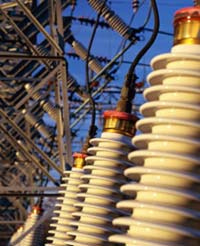| Traducir/translate: |      |


 |
|  | ||||||||||||||||||||||||||||||||||||||||||||
Noticias | Humanas | El mito del monopolio naturalReferenciasPor cada ciencia existe su contraparte: los mitos de la pseudociencia, as� para astronom�a existe la �astrolog�a�, para qu�mica la �alquimia�, para matem�tica la �numerolog�a�, para biolog�a el �Yeti�, y para la econom�a... el mito del �Monopolio Natural� Publicado: Lunes, 22/8/2005 - 15:21 | 1433 visitas.
[1] Richard T.Ely, Monopolies and Trusts (New York: MacMillan, 1990), p. 162. [2] John Bates Clark y Franklin Giddings, Modern Distributive Processes (Boston: Ginn & Co.,1888), p. 21. [3] Herbert Davenport, The Economics of Enterprise (New York: MacMillan, 1919), p. 483. [4] James L. Laughlin, The Elements of Political Economy (New York: American Book, 1902), p. 71. [5] Irving Fisher, Elementary Principles of Economics (New York: MacMillan, 1912), p. 330. [6] E.R A. Seligman, Principles of Economics (New York: Longmans, Green, 1909), p. 341. [7] Ibid., p. 97. [8] Simon Patten, "The Economic Effects of Combinations" Age of Steel (Jan. 5,1889): 13. [9] Franklin Giddings, "The Persistence of competition," Political Science Quarterly (March 1887): 62. [10] David A. Wells, Recent Economic Changes (New York: DeCapro Press, 1889), p. 74. [11] George Gunton, "The Economics and Social Aspects of Trusts," Political Science Quarterly (Sept. 1888): 385. [12] A. W. Coats, "The American Political Economy Club" American Economic Review (Sept. 1961): 621-37. [13] Thomas J. DiLorenzo, "The Origins of Antitrust: An Interest-Group Perspective," International Review of hw and Economics (Fall 1985): 73-90. [14] Burton N. Behling, "Competition and Monopoly in Public Utility Industries" (1938), in Harold Demsetz, ed., Efficiency, Competition, and Policy (Cambridge, Mass.: Blackwell, 1989), p. 78. [15] Ibid. [16] George T. Brown, The Gas Light Company of Baltimore: A Study of Natural Monopoly (Baltimore, Maryland: Johns Hopkins University Press, 1936). [17] Ibid. p.5 [18] Ibid. p.31 [19] Ibid. [20] Ibid. p.47 [21] Ibid. p.52 [22] Ibid. p.75 [23] Ibid. p.126. �nfasis a�adido. [24] Horace M. Gray, "The Passing of the Public Utility Concept", Journal of Land and Public Utility Economics (Feb. 1940): 8. [25] Ibid. [26] Ibid. p.9 [27] Ibid. [28] Ibid. p.15 [29] Ibid. p.11 [30] George Stigler and Claire Friedland, "What Can Regulators Regulate? The Case of Electricity", Journal of Law and Economics (October 1962): 1-16. [31] Gregg A. Jarrell, "The Demand for State Regulation of the Electric Utility Industry," Journal of Law and Economics (October 1978): 269-95. [32] Demsetz, Efficiency, Competition, and Policy, p. 81. [33] Murray N. Rothbard, Power and Market: Government and the Economy (Kansas City: Sheed Andrews and McMeel, 1977), pp. 75-76. [34] Murray N. Rothbard, Man, Economy, and State: A Treatise on Economic Principles (Auburn,Ala.: Ludwig von Mises Institute, 1993), p. 619. [35] Ibid. p.620 [36] Ibid. p.548 [37] Edwin Chadwick, "Results of Different Principles of Legislation and Administration in Europe of Competition for the Field as Compared With Competition Within the Field of Service," Journal of the Statistical Society of London 22 (1859): 381-420. [38] Harold Demsetz, "Why Regulate Utilities?" Journal of Law and Economics (April 1968): 55-65. [39] Ibid. [40] Ibid. [41] Steve Hanke and Stephen J. K. Walters, "Privatization and Natural Monopoly: The Case of Waterworks," The Privatization Review (Spring 1987): 24-31. [42] Walter J. Primeaux, Jr., Direct Electric Utility Competition: The Natural MonopolyMyth (New York: Praeger, 1986), p. 175. [43] "California Eyes Open Electricity Market", The Washington Times, May 27, 1995, p.2. N. del E. Debe notarse que lo que parec�a una tendencia hacia la apertura de mercado en California, termin� siendo un fiasco demag�gico. Sobre el particular es fundamental revisar dos art�culos del prof. George Reisman: "California Screaming, Under Government Blows" escrito para el Ludwig von Mises Institute Daily Article, en Dic. 22 de 2000, y "The Great Power-Shortage Myth" en la misma publicaci�n (http://www.mises.org/) en Sept. de 2004 debido a dos instancias correspondientes de fallas de energ�a en el estado de California. En ellos se atribuye adecuadamente el problema al impedimento de crear fuentes de energ�a el�ctrica que no se basen en gas a una tendencia ambientalista radical, en un contexto de creciente uso de equipos electr�nicos en f�bricas y hogares; es decir, oferta y distribuci�n fuertemente restringidas y demanda creciente por el propio progreso econ�mico. [44] La siguiente informaci�n proviene de Toni Mack, "Power to the People," Forbes, June 5,1995, pp. 119-26. [45] Ibid. p.120 [46] Ibid. p.126 [47] Thomas Hazlett, "Duopolistic Competition in Cable Television: Implications for Public Policy," Yale Journal on Regulation 7 (1990). [48] Ibid. [49] Ibid. [50] Ibid. [51] Thomas Hazlett, "Private Contracting versus Public Regulation as a Solution to the Natural Monopoly Problem," in Robert W. Poole, ed., Unnatural Monopolies: The Case for Deregulating Public Utilities (Lexington, Mass.: Lexington Books, 1985), p. 104. [52] Pacific West Cable Co. v. City of Sacramento, 672 F. Supp. 1322 134940 (E.D. Cal. 1987), citado en Hazlett, "Duopolistic Competition." [53] Thomas Hazlett, "Duopolistic Competition in Cable Television." [54] Adam D. Thierer, "Unnatural Monopoly: Critical Moments in the Development of the Bell System Monopoly", Cato Journal (Fall 1994):267-85. [55] Ibid. p.270 [56] Ibid. [57] G. H. Loeb, "The Communications Act Policy Toward Competition: A Failure to Communicate", Duke Law Journal 1 (1978):14. [58] Thierer, "Unnatural Monopoly: Critical Moments in the Development of the Bell System Monopoly" p. 277. [59] Gray, "The Passing of the Public Utility Concept", p. 10.
| NoticiasImágenes
Videos
ArtículosEntradasLibros
| |||||||||||||||||||||||||||||||||||||||||||||




 Imagen: Ecuador Ciencia
Imagen: Ecuador Ciencia






